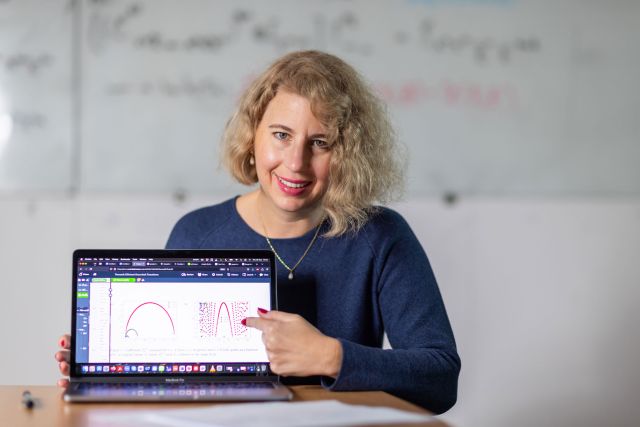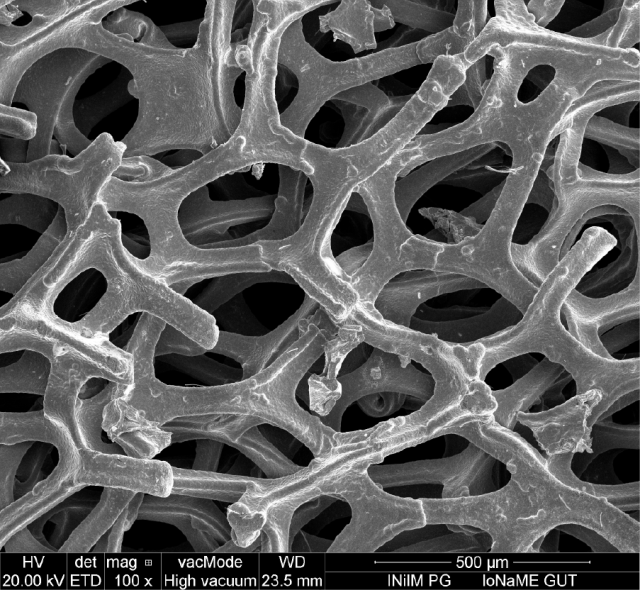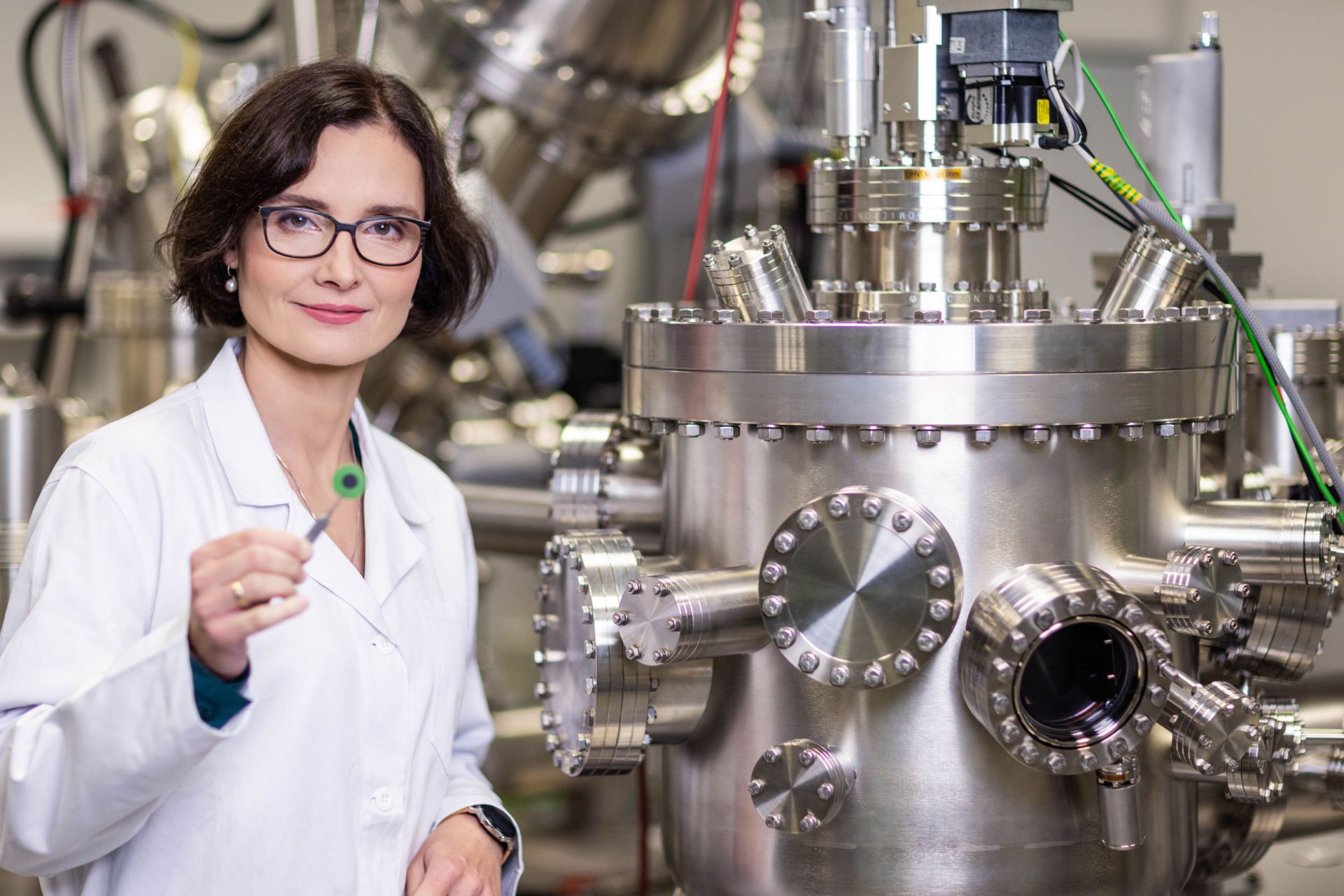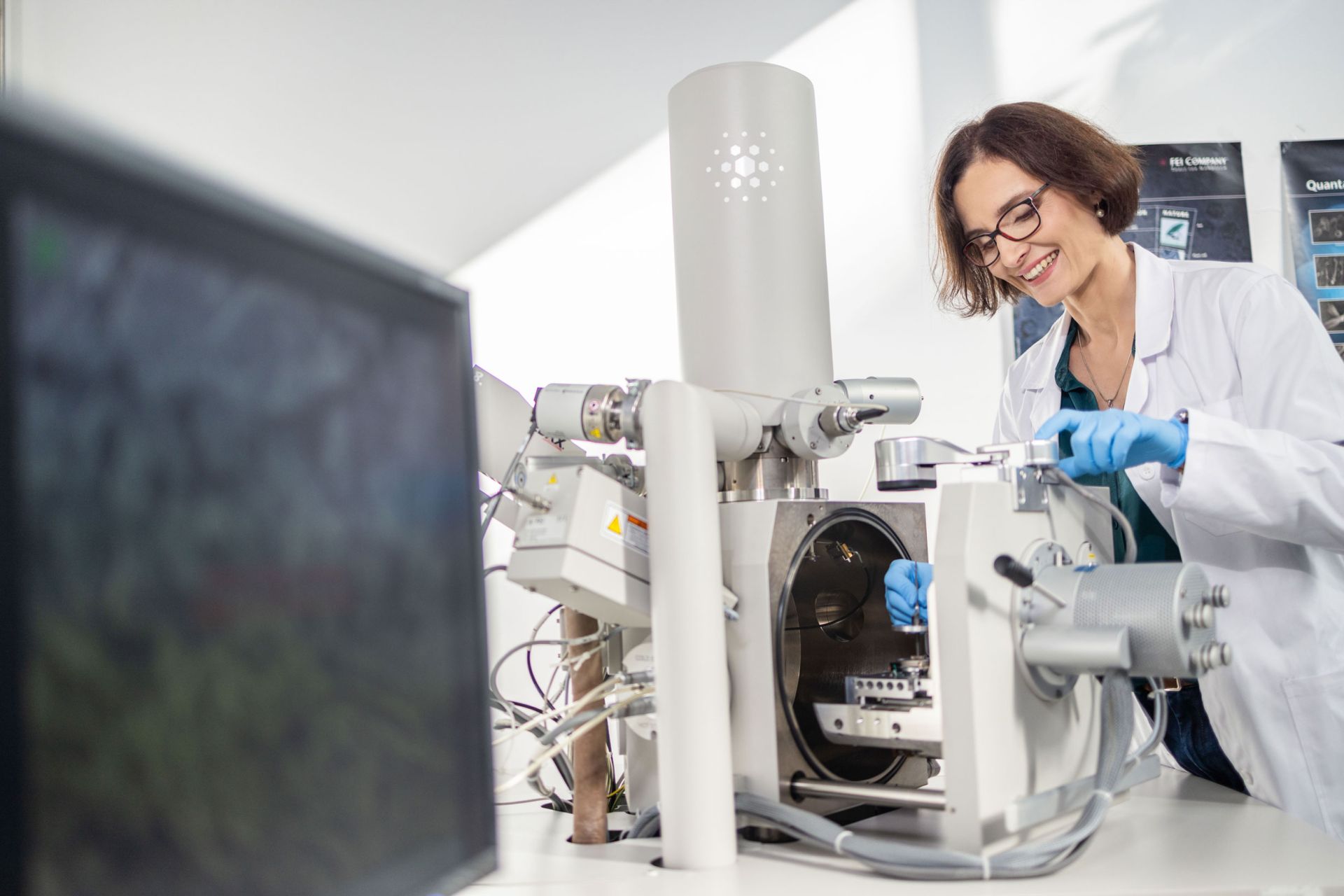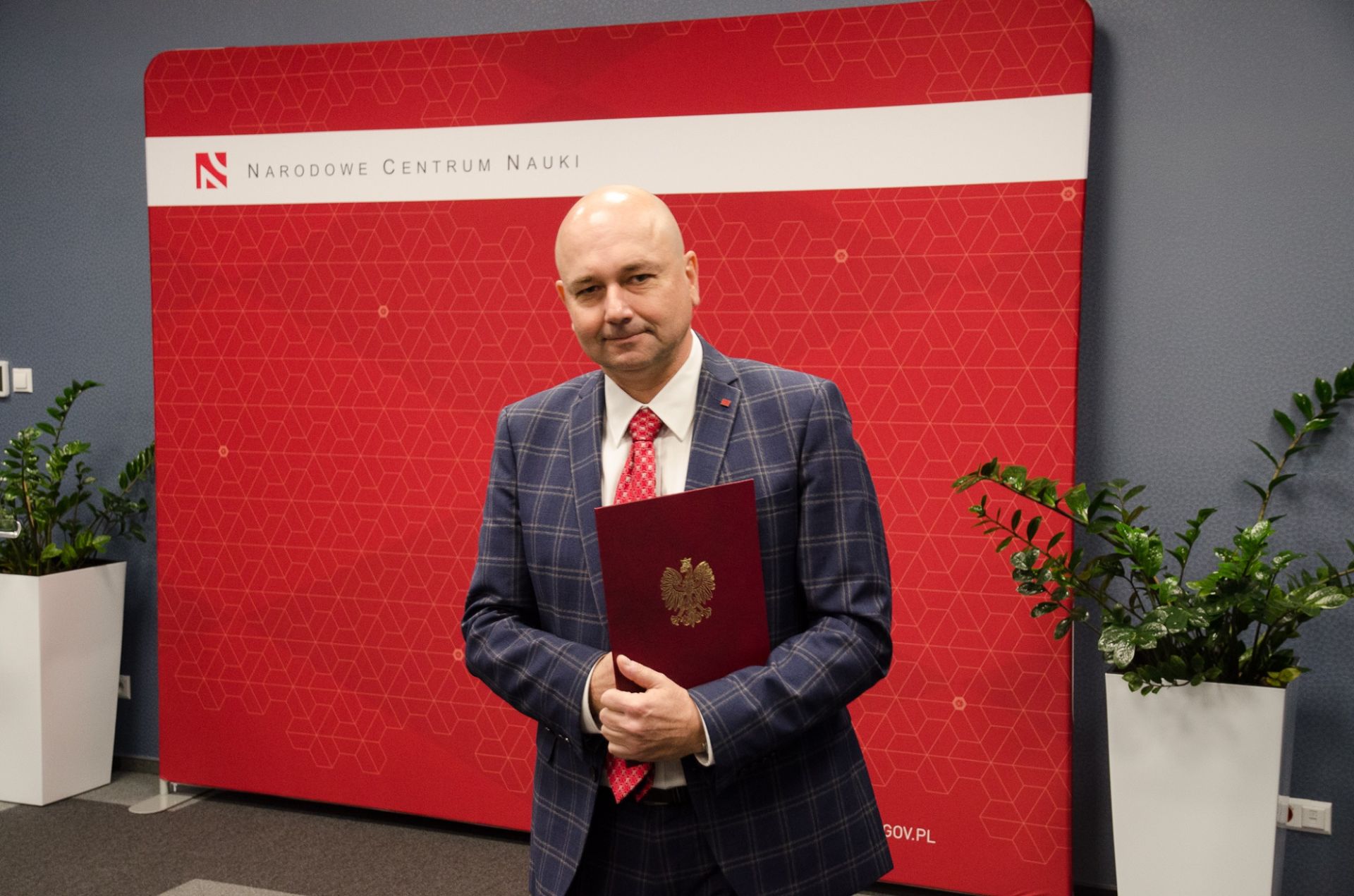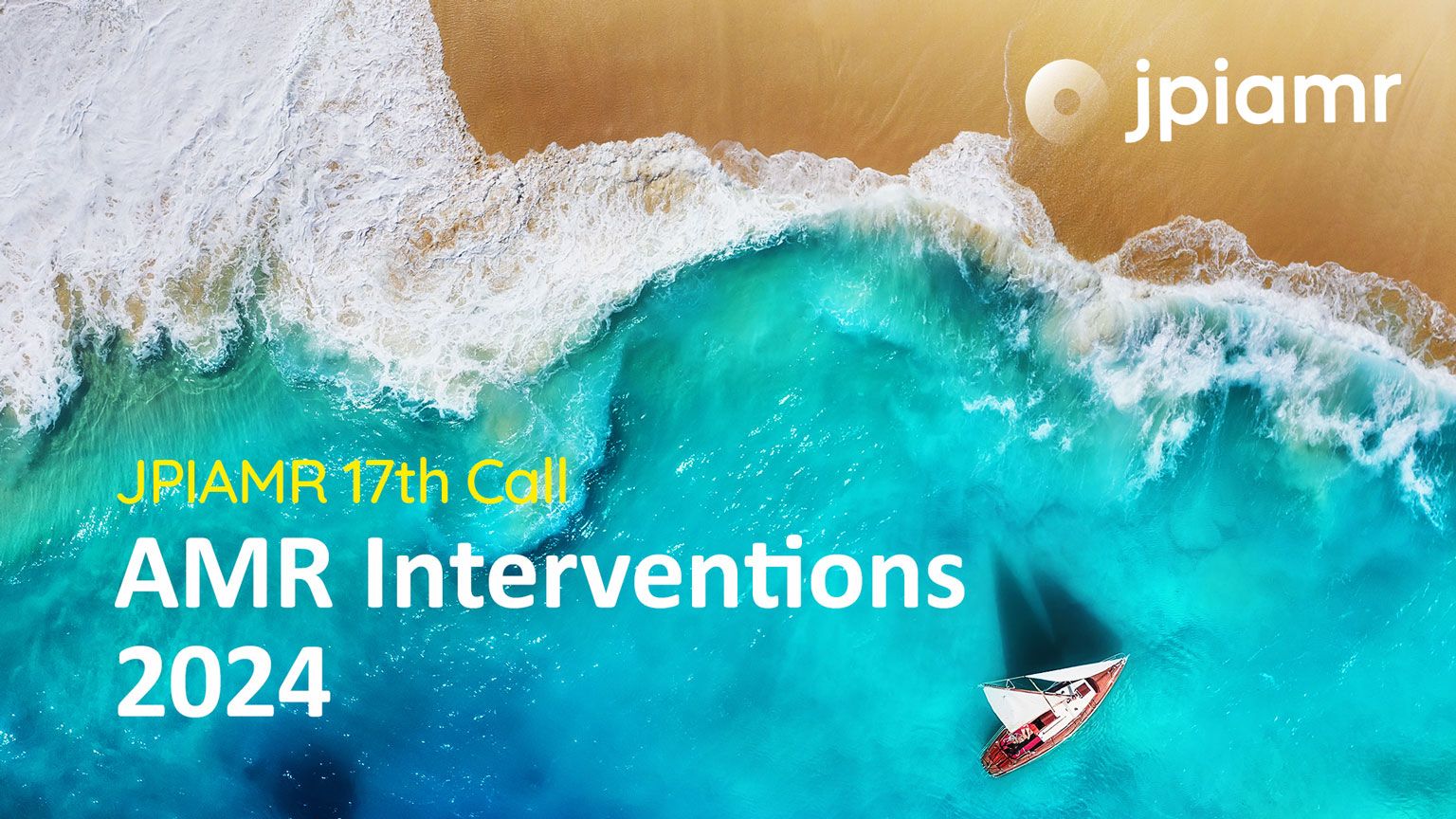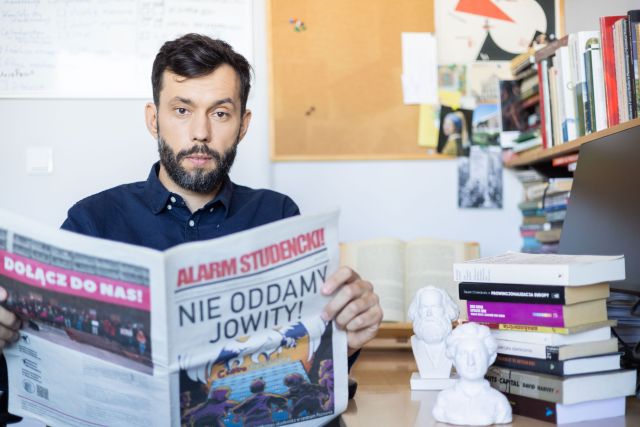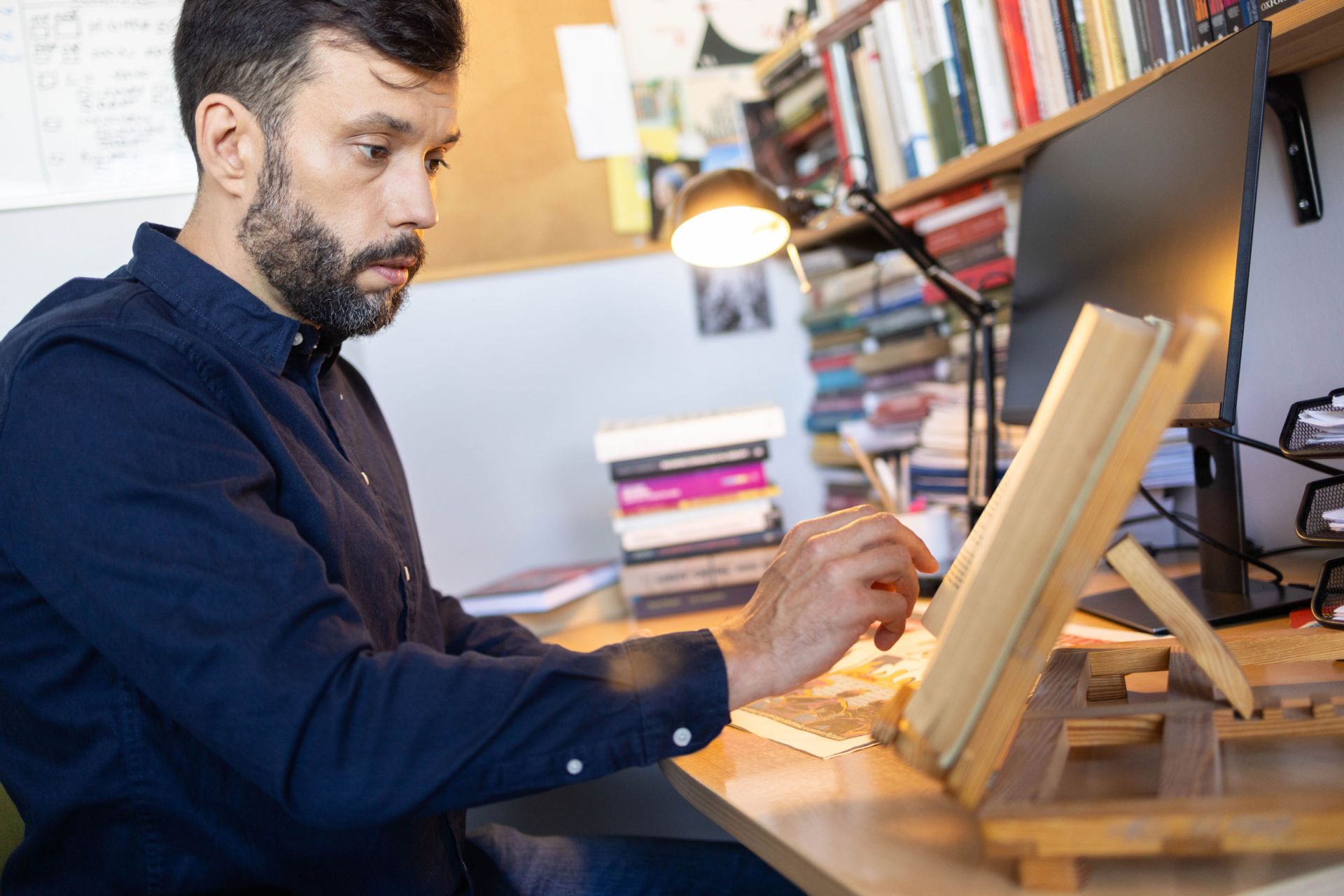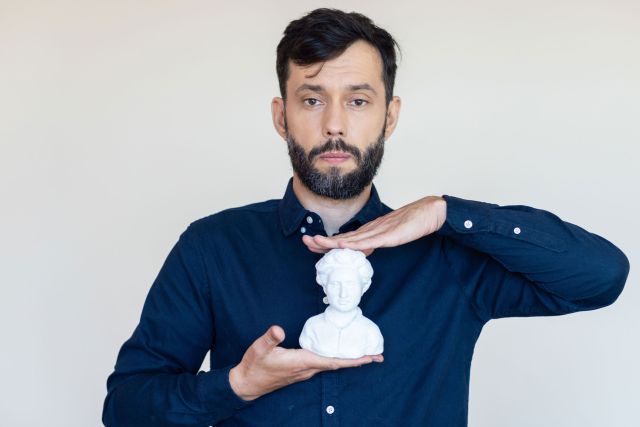PhoMemtor – Photonic Quantum Memristor Networks
Principal Investigator
:
Dr hab. Magdalena Stobińska
University of Warsaw
Panel: ST5
Funding scheme
: QuantERA
announced on
12 March 2021
In the past few decades, the field of computer science has witnessed two fundamental paradigm shifts. The first was brought about by artificial neural networks, which have proven extremely effective in tasks as diverse as language recognition, medical diagnosis, advanced automation and the most advanced artificial intelligence algorithms. The second is quantum computation, which harnesses unique quantum features such as superposition and entanglement to provide dramatic advantages for solving classically intractable problems.
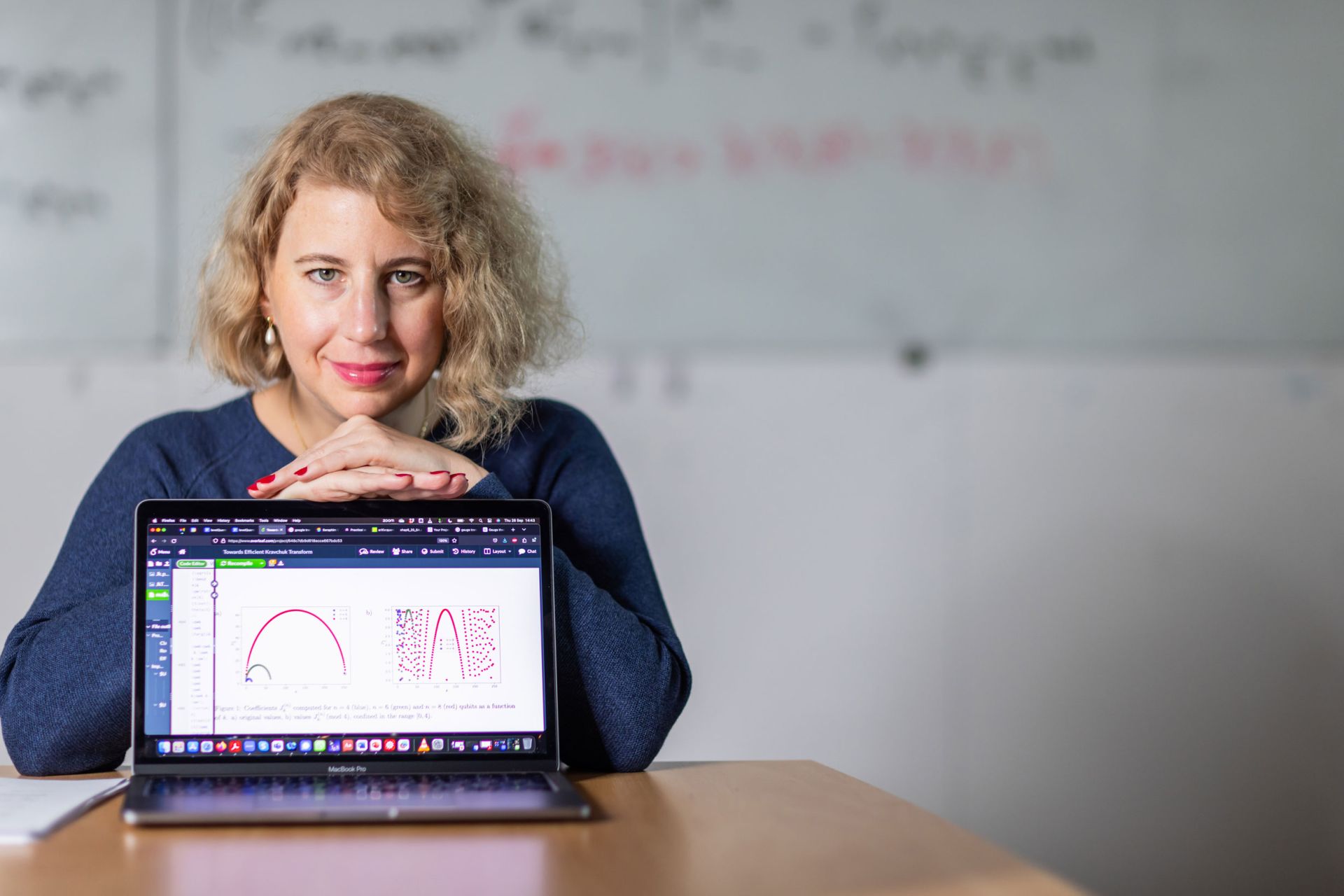 Prof. Magdalena Stobińska, photo by Michał Łepecki
This project aims to use miniature photonic quantum systems, consisting of laser micromachined circuits and optical elements, to combine both paradigms: a demonstration of quantum neural networks that rely on novel quantum memristor devices to introduce controllable nonlinear gate operations and short-time memory. The integrated photonic processor is going to be built on a glass substrate by femtosecond laser micromachining, a technique which provides outstanding advantages such as circuit reconfigurability, low insertion losses, rapid prototyping and three-dimensional circuit topology, all of which are critical for the success of the project. The quantum processor will be capable of executing programmable finite discrete mathematical transforms. Memristors, on the other hand, are elements of photonic or electronic systems that store information and have already been the subject of wide-ranging research. By combining complementary expertise in photonic quantum computing, integrated quantum photonics and quantum information theory, we will build a tuneable photonic quantum memristor network. The versatility of this nonlinear processor will be shown by demonstrating real-life quantum-enhanced applications, ranging from speech recognition to image identification, accelerated via quantum reservoir computing architectures.
Prof. Magdalena Stobińska, photo by Michał Łepecki
This project aims to use miniature photonic quantum systems, consisting of laser micromachined circuits and optical elements, to combine both paradigms: a demonstration of quantum neural networks that rely on novel quantum memristor devices to introduce controllable nonlinear gate operations and short-time memory. The integrated photonic processor is going to be built on a glass substrate by femtosecond laser micromachining, a technique which provides outstanding advantages such as circuit reconfigurability, low insertion losses, rapid prototyping and three-dimensional circuit topology, all of which are critical for the success of the project. The quantum processor will be capable of executing programmable finite discrete mathematical transforms. Memristors, on the other hand, are elements of photonic or electronic systems that store information and have already been the subject of wide-ranging research. By combining complementary expertise in photonic quantum computing, integrated quantum photonics and quantum information theory, we will build a tuneable photonic quantum memristor network. The versatility of this nonlinear processor will be shown by demonstrating real-life quantum-enhanced applications, ranging from speech recognition to image identification, accelerated via quantum reservoir computing architectures.
The project will lay the groundwork for a new quantum technology tapping the special properties of quantum memristors. The interdisciplinary nature of our consortium, as well as our methodology, put us in the best position to meet the conceptual and technological challenges of the project, allowing us to create the first generation of quantum neuromorphic computing hardware based on a quantum photonic platform.
Project title: PhoMemtor - Photonic Quantum Memristor Networks
Dr hab. Magdalena Stobińska
Professor at the University of Warsaw, head of the Quantum Information Technology Research Group at the Faculty of Mathematics, Informatics, and Mechanics, University of Warsaw. She specialises in quantum information processing, ranging from communications and cryptography, through metrology, all the way to quantum computing and algorithms. She has authored more than 40 scientific publications, served as a principal investigator in many research projects and coordinates the European Innovative Training Network “AppQInfo”, which brings together 18 institutions within the framework of Marie Skłodowska-Curie Actions (Horizon 2020). She has graduated from the Leadership Academy for Poland. She is the winner of awards such as the Alexander von Humboldt scholarship, Marie Curie scholarship, scholarships awarded by the Foundation for Polish Science and the Ministry of Science and Higher Education for outstanding young scientists, as well as an award of “Rzeczpospolita Cyfrowa” She sits on the board of the Quantum Alliance Initiative (USA).


